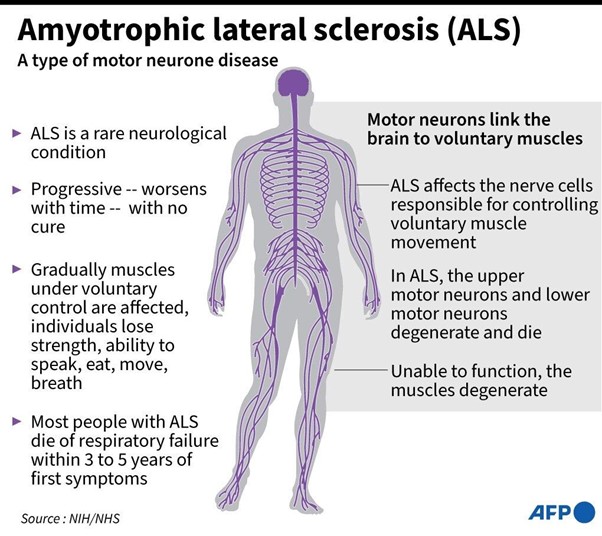A nurse is updating the plan of care for a client who has amyotrophic lateral sclerosis with dysphagia. Which of the following interprofessional team members should the nurse identify as the priority to consult?
Dietitian
Physical therapist
Speech-language pathologist
Occupational therapist
The Correct Answer is C
Choice A option:
Dietitian should not be consulted: The dietitian is an essential team member and will work closely with the client to ensure proper nutrition and dietary management. However, in the context of dysphagia, the speech-language pathologist's expertise is needed to determine safe swallowing strategies and food modifications.
Choice B option:
Physical therapist should not be consulted: The physical therapist focuses on maintaining and improving the client's physical function and mobility. While important in ALS management, the physical therapist's role is not directly related to the immediate issue of dysphagia.
Choice C option:
The speech-language pathologist is the correct answer because it specializes in assessing and treating communication and swallowing disorders. In this case, the speech-language pathologist is essential in evaluating the client's swallowing function, recommending appropriate dietary modifications (texture and consistency of foods), and implementing swallowing exercises or strategies to improve swallowing safety.
Choice D option:
Occupational therapist should not be consulted: The occupational therapist assists clients in regaining or maintaining independence in daily living activities. While the occupational therapist may address some aspects of mealtime activities and adaptive strategies, the speech-language pathologist is more specialized in evaluating and treating swallowing difficulties in clients with ALS.

Nursing Test Bank
Naxlex Comprehensive Predictor Exams
Related Questions
Correct Answer is B
Explanation
- Urinary output is an important indicator of fluid balance and kidney function. After delivery, a woman may experience increased urinary output due to the loss of excess fluid that was retained during pregnancy and the diuretic effect of oxytocin, which is released during breastfeeding. This is a normal and expected finding in the postpartum period.
- However, increased urinary output may also be a sign of urinary retention, which is the inability to empty the bladder completely. Urinary retention can occur due to trauma to the bladder or urethra during delivery, swelling or hematoma of the perineum, epidural anesthesia, or decreased bladder sensation.Urinary retention can lead to complications such as infection, bladder distension, or postpartum hemorrhage.
- Therefore, when a woman who delivered a normal newborn 24 hours ago reports that she seems to be urinating every hour or so, the practical nurse (PN) should measure the next voiding, then palpate the client's bladder. This will help to assess the amount and quality of urine and the presence or absence of bladder distension. A normal urine output is about 30 ml per hour, and a normal bladder should feel soft and empty after voiding. If the urine output is low or high, or if the bladder feels firm or full after voiding, the PN should report these findings to the primary healthcare provider for further evaluation and intervention.
Therefore, option B is the correct answer, while options A, C, and D are incorrect.
Option A is incorrect because catheterizing the client for residual urine volume is an invasive procedure that should only be done if indicated by the primary healthcare provider.
Option C is incorrect because evaluating for normal involution and massaging the fundus are related to uterine function, not urinary function.
Option D is incorrect because obtaining a specimen for urine culture and sensitivity is not necessary unless there are signs of infection, such as fever, dysuria, or foul-smelling urine.
Correct Answer is D
Explanation
A. Discussing the suspicion of physical abuse with the provider isis essential, but it should not replace reporting to CPS. The provider’s input is valuable, but immediate action is necessary.
B. Confronting the parents with the suspicion of physical abuse is not an appropriate action for the nurse to take, as it can escalate the situation and endanger the child or the nurse.
C. Asking the hospital security to detain and question the parents is not an appropriate action for the nurse to take, as it violates the parents' rights and may interfere with the legal process.
D. Contacting Child Protective Servicesnurses are legally required to report all cases of suspected child abuse to the appropriate local or state agency.It's a critical step in protecting the child from further harm.
Whether you are a student looking to ace your exams or a practicing nurse seeking to enhance your expertise , our nursing education contents will empower you with the confidence and competence to make a difference in the lives of patients and become a respected leader in the healthcare field.
Visit Naxlex, invest in your future and unlock endless possibilities with our unparalleled nursing education contents today
Report Wrong Answer on the Current Question
Do you disagree with the answer? If yes, what is your expected answer? Explain.
Kindly be descriptive with the issue you are facing.
